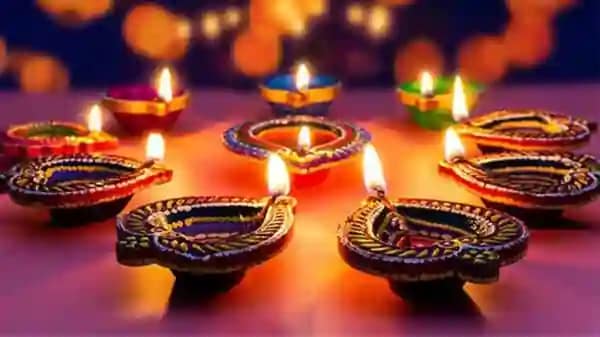Table 1: Outline of the Article :Diwali Celebration Reasons
- Introduction to Diwali
- The Significance of Diwali
- Historical Background
- The Religious Aspect
- Diwali Across Cultures
- Diwali Traditions
- Diwali Decorations and Lights
- The Festival of Food
- Fireworks and Entertainment
- The Festival of Giving
- Diwali in the Modern World
- Environmental Concerns
- Diwali in Different Regions
- How Diwali is Celebrated Today
- Conclusion
Table 2: Article
Why we Celebrate Diwali?
Diwali, also known as Deepavali, is one of the most widely celebrated festivals in India and among Indian communities around the world. This festival of lights is not just about lighting lamps and bursting fireworks; it holds profound cultural, religious, and historical significance. In this article, we will delve into the various aspects of Diwali, exploring why it is celebrated with such enthusiasm and zeal.
The Significance of Diwali
Diwali, as the name suggests, is the festival of “diyas” or lamps. The significance of lighting lamps during this festival is multifaceted. One of the central themes of Diwali is the triumph of light over darkness and good over evil. The lighting of lamps symbolizes the dispelling of ignorance and the advent of knowledge. It is a time to reflect on the inner light that dwells within each of us.
Historical Background
The history of Diwali dates back thousands of years, with several mythological stories associated with it. One of the most famous legends is the return of Lord Rama to Ayodhya after defeating the demon king Ravana. The people of Ayodhya celebrated his return by lighting lamps, a tradition that continues to this day.
The Religious Aspect
Diwali is celebrated by different communities for various reasons. For Hindus, it marks the return of Lord Rama, as mentioned earlier. Sikhs celebrate Diwali as a tribute to Guru Hargobind Ji, the sixth Sikh Guru, who was released from imprisonment on this day. Jains commemorate Lord Mahavira’s attainment of nirvana on Diwali. This diversity of religious significance showcases the inclusiveness of the festival.
Diwali Across Cultures
While Diwali has its roots in India, its celebration has transcended borders. Indian communities around the world eagerly anticipate this festival. In some countries, it is recognized as an official holiday. Diwali celebrations often include cultural programs, traditional dances, and an abundance of Indian sweets.
Diwali Traditions
The traditions associated with Diwali are numerous. Cleaning and decorating homes is a common practice. Families come together to create colorful rangoli patterns at their doorsteps, which are believed to invite prosperity. Exchanging gifts and sweets is another essential Diwali tradition.
Diwali Decorations and Lights
One of the most visually striking aspects of Diwali is the use of lights and decorations. Homes and public places are adorned with oil lamps, candles, and colorful lanterns. The idea is to illuminate the surroundings and create an atmosphere of joy and positivity.
The Festival of Food
Food plays a vital role during Diwali celebrations. Families prepare an array of delicious dishes and sweets. Special Diwali sweets like “laddoos” and “jalebis” are made and shared with neighbors and friends. It’s a time when the kitchen is filled with the aromas of various spices and sweets being prepared.
Fireworks and Entertainment
The night of Diwali is famous for its dazzling fireworks displays. The sky is lit up with a mesmerizing array of colors and patterns. Fireworks are not just about entertainment; they are a symbol of the victory of light over darkness.
The Festival of Giving
Diwali is also a time for giving. Many people use this occasion to donate to charitable causes, help the less fortunate, and support those in need. This spirit of giving is a reminder of the importance of compassion and empathy.
Diwali in the Modern World
In the modern world, Diwali has taken on new dimensions. It’s not just a religious festival but a cultural extravaganza. The exchange of gifts has evolved to include modern gadgets and fashionable items. The festival has become an integral part of India’s economy, with businesses offering special discounts and promotions.
Environmental Concerns
While Diwali is a time of joy and celebration, it’s also important to address environmental concerns. The excessive use of fireworks and firecrackers has led to air pollution and health issues. In recent years, there has been a growing awareness of celebrating an eco-friendly Diwali by opting for fewer fireworks and more sustainable practices.
Diwali in Different Regions :Diwali Celebration Reasons
Diwali is celebrated with unique regional flavors across India. In North India, it’s associated with the story of Lord Rama, while in South India, it marks the victory of Lord Krishna over the demon Narakasura. Each region adds its own cultural and historical significance to the festival.
How Diwali is Celebrated Today
Today, Diwali is celebrated with grandeur and enthusiasm. It’s a time for family gatherings, feasting, and cultural events. The tradition of lighting lamps, exchanging gifts, and dressing in new clothes continues. It’s a time when people make an extra effort to spread happiness and positivity.
Conclusion
In conclusion, Diwali is not just a festival of lights; it’s a festival of life and all the positive values it represents. It’s a time to reflect on the victory of good over evil, knowledge over ignorance, and the importance of giving and sharing. Diwali is an embodiment of the richness of India’s cultural diversity and its message of unity.
Frequently Asked Questions (FAQs) Diwali Celebration Reasons
- What is the history behind Diwali?
Diwali has a rich historical background, with one of its central stories being the return of Lord Rama to Ayodhya after defeating Ravana. It is also celebrated in different communities for various religious reasons.
- How is Diwali celebrated outside India?
Diwali is celebrated with enthusiasm by Indian communities around the world. It often includes cultural programs, traditional dances, and the exchange of gifts and sweets.
- What are some popular Diwali traditions?
Common Diwali traditions include cleaning and decorating homes, creating rangoli patterns, exchanging gifts and sweets, and preparing an array of delicious dishes.
- How can we celebrate an eco-friendly Diwali?
To celebrate an eco-friendly Diwali, you can opt for fewer fireworks, use eco-friendly materials for decorations, and be mindful of the environment while celebrating.
- Why is Diwali an important festival in India? Diwali Celebration Reasons
Diwali is significant in India as it represents the triumph of light over darkness, good over evil, and the importance of unity and giving. It’s a festival that encompasses cultural, religious, and historical significance.
Blog by Nav Times News , Powered by MSasian Entetrtainment , Knowledge Partner –MS ASIAN FILM ACADEMY







